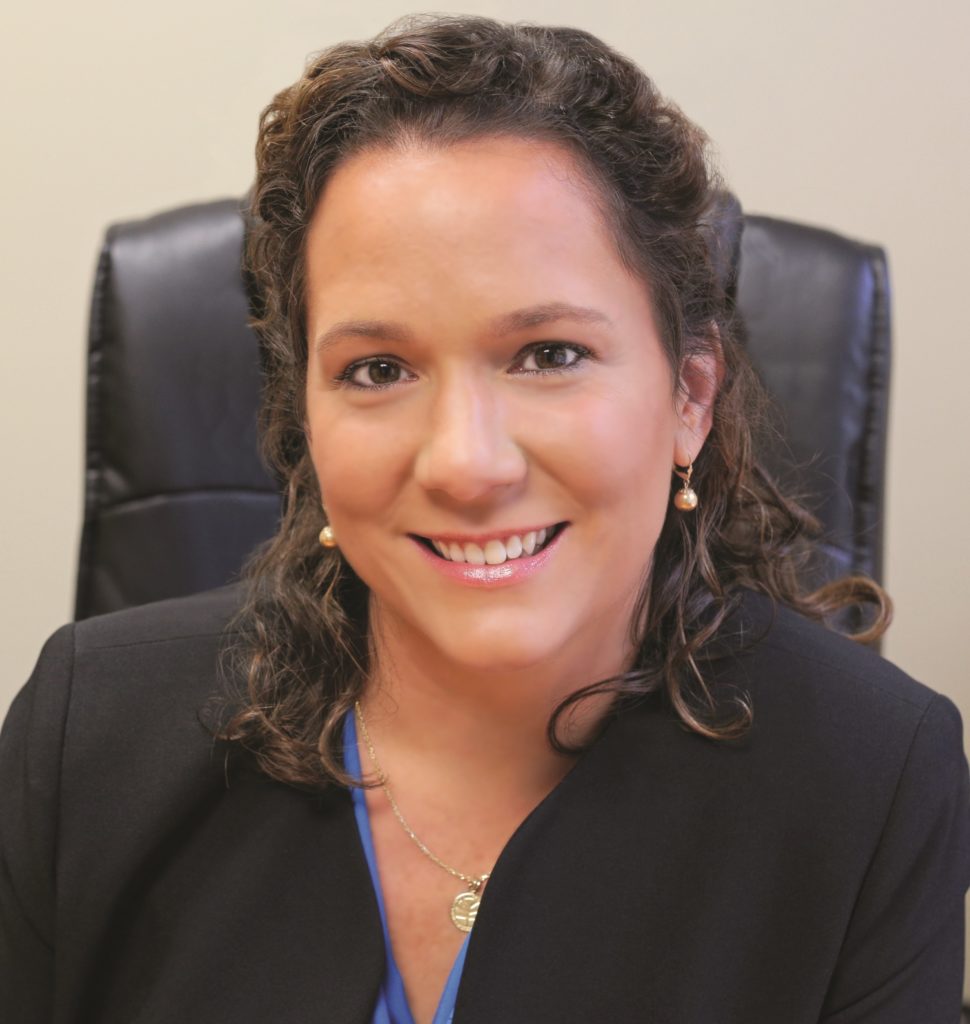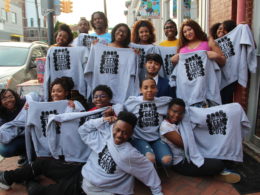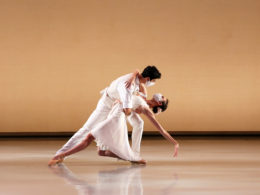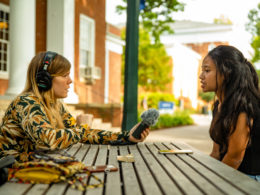Some kids hate doing homework after school. All they want is to watch television, play video games or hang out with friends. However, thanks to a partnership between Richmond businesses and schools, now there are many amazing ways to help kids be more creative and excited when it comes to learning.
NextUp offers opportunities for kids of all backgrounds and socioeconomic levels to discover what they’re good at or passionate about. Whether it’s about arts, humanities, space, STEM, wellness or mentoring, NextUp provides free classes for middle school kids to make sure they get to learn outside traditional classrooms.
We caught up with Barbara Sipe, the executive director of NextUp, who loves bringing incredible knowledge to students – not just academic knowledge – but also behavioral and creative skills.
When did you get the idea to start NextUp? At that point, what were some challenges that you faced?

The idea for NextUp came from the business community and Richmond Public Schools (RPS) back in 2011. A group was formed of business leaders, nonprofits, and the school system to ask the big, bold question: “What would it take to put more kids on the path to success?” They recognized that there was a 100% shared commitment to Richmond’s youth and to a strong education system for Richmond students.
So, the group discussed where to focus its efforts: the middle school years. This is the time in child development where kids become more independent; peer relations gain importance over family relations. We need a way for kids to stay connected to their learning and find out what they’re great at, to get inspired and energized by it. As a result, NextUp was established in September 2013 to connect providers, schools and kids to these learning enrichment programs.
The first challenge was figuring out how to coordinate the programs. Fortunately for us, the Wallace Foundation and others had started similar initiatives in the early 2000’s. We learned from programs in cities such as, Nashville, Rhode Island, North Carolina, Chicago, etc. how to coordinate programs to give kids more access through schools.
We pitched our model in 2014 at Henderson Middle School. Instead of registering for every single class with different providers, students register with NextUp and we place them into the programs that they’ve selected. Within the first two years, we doubled the number of kids who stayed after school for activities.
How has NextUp grown in the past seven years? When you look back, at what moment did you think NextUp found its success?
Since our pilot in 2014, we’ve connected 2,000 students across 5 middle schools to a network of 60 providers. Today, every RPS middle school has quality afterschool programs. It was a real priority for Mayor Stoney to make sure that programs were available for kids after school. We have accomplished something important in Richmond.
During COVID, we also created an online portal. We have live classes that kids can sign up for and do through Zoom. Now, programs are available to all Richmond students. If they want to participate, they can access these programs for free.
The students have shared that they make more friends within their schools. For example, sixth, seventh and eighth graders who have an interest in computer coding can take the class together. They wouldn’t otherwise have ever gotten a chance to know each other through the traditional school days. A teacher at Henderson Middle School shared with me that he noticed the kids were more age-appropriate, and they seemed younger. They were using the chants and cheers that the programs, like the Y and Higher Achievement, had taught them and were being supportive of each other. Moreover, we have data that shows kids who are participating in NextUp are showing up to school more often than their peers and have better behavior and grades.
One of the greatest days in my career at NextUp was when I walked into Lucille M. Brown Middle School, and an eighth grader named Aniyah came to me and shared that she got accepted into the Governor’s School for Technology. In her application, she used what she had been doing in the Chesapeake FIRST Robotics Club and RPS Education Foundation’s the Tech Connect Program, which had given her the confidence to apply and go through interviews.
How many students has NextUp served to date? What does that number mean to you?

We’ve served over 2,000 kids with quality learning enrichments in the city. There’s more room to grow, and we want to connect at least 1,000 kids every year. It shows that if organizations and adults work better together, we can make things more accessible to the kids. If programs are accessible and high quality, the kids will sign up and bring their friends. We can create a culture of learning beyond the school day and a whole new way of experiencing middle school through afterschool programs.
Tell me about your relationship with providers. How does a provider get involved with NextUp – and do you have any provider success stories you’d like to share?
We started with 11 providers in 2014. Now, we have over 60 providers, half of them are nonprofit organizations. The other 50% are community entrepreneurs or teachers from the schools. We have some amazing individuals who have created businesses that focus on programming, including a sewing program, cooking program and a computer coding program. Also, 41% of our providers represent minority communities. It’s important for students to see themselves in the fields that they’re interested in and for programs to have cultural relevance. We want children of all backgrounds, races and genders to discover their talents, find what they’re good at or passionate about.
Organizations and providers can be a partner of NextUp through an annual application process. We have a volunteer committee that reviews those applications to look at quality standards and the strength of the application. We have every organization reapply once a year and go through that process again. We work with all kinds of programs: either in the arts and humanities, science and technology, sports and wellness or mentoring and leadership.
As we’ve grown, we’ve seen our partners expand themselves, which has been wonderful. Greater Richmond Fit4Kids is one of them. We provide them with some funding and access to the middle school space and now every Richmond middle school that we work with has a community garden and garden programs all year. Another great story is with Victoria’s Kitchen. Ellen Victoria, the owner, does a culinary program. When we had to go online because of COVID, she created food kits to continue teaching the love of healthy eating and cooking to students during the pandemic. She also delivered the kits to the students so they could continue cooking classes together online. We also partner with FIRST Chesapeake to bring FIRST Robotics to the middle schools, which hadn’t existed before we came around. Now, every school has a robotics team, and we do competitions throughout the year together. Even in the pandemic, kids are still able to build robots from their kitchen table as they have the materials at home to do their programs. There are many incredible organizations and people out there that are doing awesome work for kids.
What problem or problems has NextUp addressed during the pandemic? How does that affect how you support students in the future?
We knew that colleges had online classes for a long time, So, when COVID started making its way across the globe, we wondered why our computer coding class or cooking class couldn’t be as well. By April 1, 2020, we launched an online portal for virtual programs. We led training for our providers on how to have interactive virtual classes and we provided them with funding to purchase equipment. By the end of the summer, we had over 300 kids participating in our online programs. We’ll be back in person this fall, but we’re going to continue online classes as well. We want to make sure that program providers are still available to kids as they continue their enrichment. Through the pandemic, we optimized how we do class registrations, data tracking, promotion of programs, etc. Now, we’re excited about what we can do with technology, which will make access even better and easier in face-to-face learning as well as online.
How can someone apply to NextUp program?
The fall session starts the first Monday in October. In September, our online portal will open for the fall classes. The sign-up button is on our website. Students and parents will be able to make an account. Then, they will see all the available classes. They will get the emails with the Zoom links and their schedule once they have successfully signed up.
If you’re interested in learning more about NextUp, visit its website or follow it on Facebook and Instagram. You can donate directly here.










